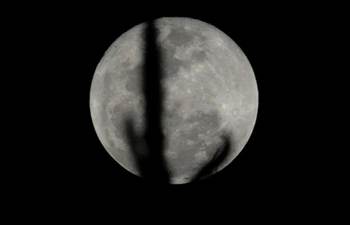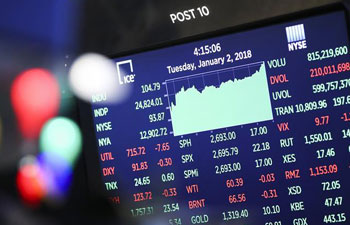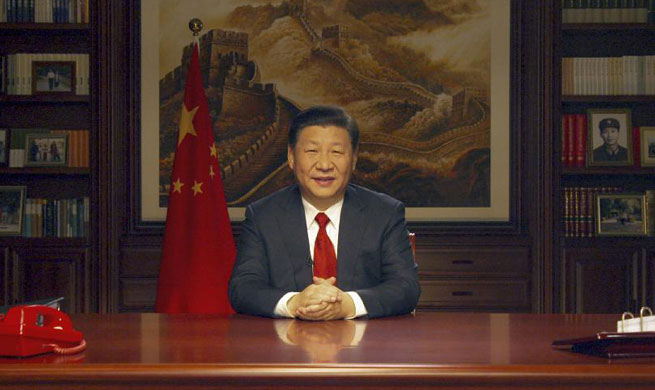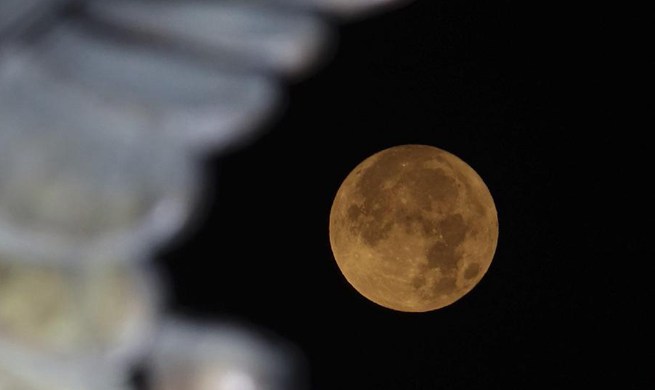BEIJING, Jan. 2 (Xinhua) -- China's film industry achieved rapid growth in 2017, with both novice and veteran directors producing works catering to increasingly diverse demands.
China's movie box office revenue rose 13.45 percent in 2017 to more than 55.9 billion yuan (8.6 billion U.S. dollars), with domestic films contributing 53.84 percent to the market, according to the State Administration of Press, Publication, Radio, Film and Television (SAPPRFT).
Domestic action movie "Wolf Warrior II" was top of the list, becoming the country's highest-grossing film ever, raking in 5.68 billion yuan in ticket sales.
Four other domestic movies made it to the top 10 list: "Never Say Die" in third place, "Kung Fu Yoga" in fourth place, "Journey to the West: The Demons Strike Back" in fifth, and "Youth" in eighth place.
Blockbusters by renowned Chinese directors were released successively through the year. "Journey to the West: The Demons Strike Back" by Tsui Hark and Stephen Chow debuted during Chinese Spring Festival. "The Founding of an Army" by Andrew Lau was released during the summer holiday, followed by Wong Jing's "Chasing the Dragon." Feng Xiaogang's "Youth" and Chen Kaige's "Legend of the Demon Cat" ushered in the new year season.
Chinese novice directors also made their contributions to box office revenue. Besides the success of Wu Jing's "Wolf Warrior II," other films also thrived -- "Never Say Die" by Song Yang and Zhang Chiyu raked in 2.2 billion yuan, and Han Han's "Duckweed" took over 1 billion yuan.
"Compared with their predecessors, the new filmmakers pay closer attention to the balance between commercial appeal and artistic expression, thus promoting the overall competence of China's film industry," said Chen Xuguang, a professor at the school of arts at Peking University.
Several low-budget films won unexpected praise in 2017. "Twenty-Two" featuring the tales of 22 comfort women became the first Chinese documentary to surpass 100 million yuan at the box office, and "Seventy-Seven Days," an adventure film targeted at outdoor enthusiasts and young art-lovers, also raked in more than 100 million yuan.
"In recent years, more and more Chinese audiences are calling for diversified movie content," said Li Jifeng, producer of "Seventy-Seven Days."
Li stressed the importance of artistic thought and human touch in the productions, saying the ultimate winners would be films which show faith and passion in their content and meet the needs of the audience.
China has more than 444,000 movie screens, more than that in North America.



















